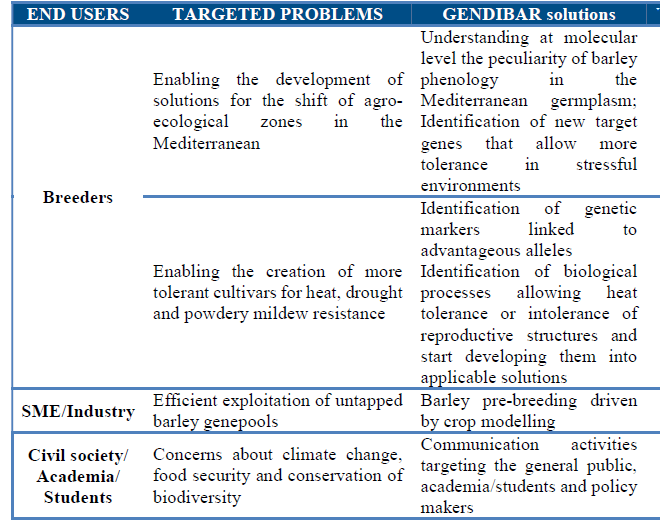Thematic area
- Agrifood
Project type
- Research
Country
- Italy, Spain, Turkey, Algeria
Duration
- 2019 – 2022
Partners
- (Coordinator) Agostino Fricano Consiglio per la ricerca in agricoltura e l’analisi dell’economia agraria – Centro di Genomica e Bioinformatica (CREA-GB), Italy
- Alessia Perego Università degli Studi di Milano (UNIMI) Italy
- Abderrahmane Djemel École Nationale Supérieure Agronomique (ENSA) Algeria
- Ivan Acosta Max Planck Institut für Pflanzenzüchtungsforschung (MPIPZ) Germany
- Khaled Soliman Ain Shams University, Faculty of Agriculture, Department of Genetics. (ASUDG) Egypt
- Gustavo A. Slafer Universidad de Lleida (UdL) Spain
- Ernesto Igartua Agencia Estatal Consejo Superior de Investigaciones Científicas (CSIC) Spain
- Moez Hanin University of Sfax -Institute of Biotechnology (USIB) Tunisia Nevzat Ağrı TEKFEN Tarim (TEKFEN) Turkey
Scientific supervisor
- Alessia Perego
Founded by
- MIUR and 25973 co-funded by UNIMI
Snapshot of project
| Objectives | Beneficiaries |
|---|---|
| GENDIBAR aims to achieve the following objectives: (i) harnessing barley diversity to detect new alleles that have the potential to cope with projected climate change, shifts of agroecological zones of the Mediterranean and resistance to powdery mildew, (ii) creating new knowledge and molecular tools to assess and appraise the genetic bases of heat tolerance and intolerance at vulnerable stages of barley development, (iii) providing new hypotheses for adopting better agricultural practices to minimize the effects of climate change in current and future Mediterranean environments, (iv) improving model-aided ideotype design for the different agro-ecological zones, (v) enabling the creation of tolerant and resilient barley varieties exploiting barley diversity. |  |
| Role of UNIMI |
|---|
| UNIMI is the leader of work package 4, which is about crop modelling to profile barley ideotypes and to guide pre-breeding. Particularly, UNIMI is responsible for designing high-yielding barley ideotypes to cope with climate change in the Mediterranean area by means of modelling analysis based on phenotypic traits. |
| Attachments |
|---|
| File |
